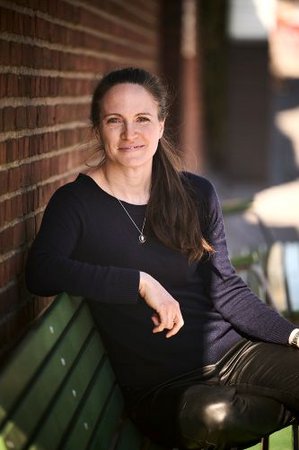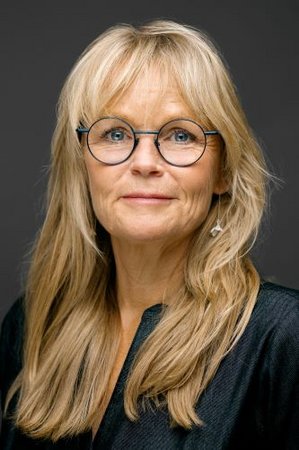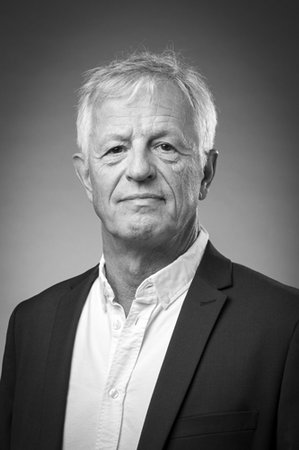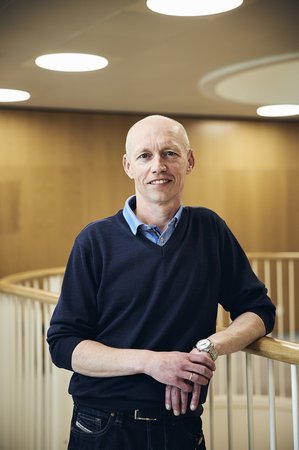As part of its annual celebration in September, Aarhus University will confer one of Denmark’s oldest and most prestigious science awards, the Rigmor and Carl Holst-Knudsen Award for Scientific Research.

We cannot take our democracy for granted. In a world of increasing political polarisation, it’s more important than ever to understand the dynamics behind our political opinions. Professor Lene Aarøe will receive the Holst-Knudsen Research Talent Award for her groundbreaking interdisciplinary research into political opinion formation, combining political science, psychology, biology and communication.
Read more about Professor Lene Aarøe in this article: Politics: Our emotions control our choices.

Professor Lotte Meinert conducts research in anthropology with a particular focus on humanistic safety and health research. Her research demonstrates how anthropology can provide new perspectives on many current societal challenges, like the spread of diseases.
Lotte Meinert has a strong global engagement and works to build collaborations with universities and institutions in Africa. She is committed to educating early-career researchers from partner countries in and beyond Europe and creating networks between European universities and African institutions. This fosters equal research collaborations between the EU and Africa and has, among other things, made it possible for African partner universities to take on a more central position in the EU.
Read more about Professor Lotte Meinert in this article: Professor Lotte Meinert receives prestigious award.

Over the years, both cancer patients and their relatives have benefited from the results of Professor Bobby Zachariae’s research into the psychological and delayed complications of a life-threatening illness. More and more people are able to live with cancer or survive it. However, this can come at a cost such as depression, fear of relapse, pain, sleep problems, fatigue and cognitive difficulties. Bobby Zachariae and his group are conducting research into how we can most effectively prevent and remedy these issues.
Since the 1990s, Bobby Zachariae has been interested in the interplay between psychology and biology, and his early research into the correlation between psychological processes and the immune system made him a pioneer within the research field of psychoneuroimmunology. Through several experiments, he and his research partners were able to demonstrate how psychological techniques such as hypnosis and visualisation can affect the immune system.
This research led to Bobby Zachariae obtaining a higher doctoral degree in medicine in 1996 with his dissertation "Psychological Modulation of Immunological and Inflammatory Parameters”.
In 1999, Bobby Zachariae received a grant from the Danish Cancer Society and established a psychooncological research unit at the cancer department at the former Aarhus Municipality Hospital. The unit became permanent in 2011 and was renamed the Unit for Psycho-Oncology and Health Psychology (EPoS) in collaboration between Aarhus University and Aarhus University Hospital.

Professor of Medicine Søren Riis Paludan has been awarded the Rigmor and Carl Holst-Knudsen Award for Scientific Research for his innovative research into how viral infections activate the immune system.
The fundamental question in Søren Riis Paludan’s research is how the immune system detects infections and initiates beneficial – or sometimes harmful – reactions to eliminate viruses. His research was made even more relevant by the Covid-19 pandemic, which highlighted the fact that the same virus can cause a range of different symptoms in different people.
Søren Riis Paludan has identified basic mechanisms in the immune response and, by doing so, has made a significant contribution to scientific knowledge that has paved the way for new vaccines and the treatment of diseases such as herpes, HIV and hepatitis – and most recently Covid-19. His approach to infection immunology has led to several ground-breaking discoveries and has changed the way we understand the immune system.
Over the last two years, Søren Riis Paludan has appeared in the Danish and international media more than 4,500 times, and he has thus played a vital role in informing the public about Covid-19 and helping society navigate the pandemic. He used his talent for communication to establish a dialogue between scientific experts and the general population at a time when clear answers to questions about the global health crisis were urgently required.
Søren Riis Paludan’s research is frequently cited, and he has received a number of awards and grants, including the Elite Research Prize and an ERC Advanced Grant from the European Research Council. He collaborates with the pharmaceutical industry, and his laboratory is part of a consortium established by Bavarian Nordic to develop a Covid-19 booster vaccine.

Professor Preben Bo Mortensen conducts research in psychiatric epidemiology. His main research interest is uncovering what genetic and environmental factors contribute to risk of illness and the course of a disease, including how genes and environment interact. His goal is to determine the causes of, improve treatment of and prevent mental illness in order to create a better life for the individual. Aided by data from biobanks and Danish registers, he conducts research into the five most severe types of mental illness, and he has generated important new insights into schizophrenia, depression, autism, bipolar disorder and ADHD.
Preben Bo Mortensen has published more than 690 scientific articles including in internationally renowned journals such as Nature, Science and JAMA Psychiatry, and he has an impressive H-index of 90. In addition, he distinguishes himself by having created strong national and international collaboration with, among others, Johns Hopkins University, MIT and Harvard University.
Currently, Preben Bo Mortensen is scientific director of the research centre iPSYCH, which is affiliated with Aarhus University, where more than 150 researchers within psychiatry, genetics and register-based research in Denmark are employed. He is also centre director at the National Centre for Register-based Research in the Department of Economics and Business Economics at Aarhus BSS.
Preben Bo Mortensen graduated as a medical doctor from AU in 1986. The same year he received Aarhus University’s gold medal for his entry in AU’s prize essay in psychiatry about the relation between schizophrenia and cancer.
In 1995 he earned a higher doctoral degree in medical science at Aarhus University with his dissertation, “The Epidemiology of Cancer in Schizophrenic Patients”.
Afterwards, he worked for a while as the senior hospital physician at the Psychiatric Hospital in Risskov before returning to the world of research – first to Johns Hopkins University in the US and later Aarhus University, where he has been employed ever since.
During his career, Preben Bo Mortensen has received prizes and honours such as the Order of Dannebrog in 2010 and the Novo Nordisk Prize in 2020.
Due to Covid-19 a winner of the Rigmor and Carl Holst Knudsen Award for Scientific Research was not found in 2020.
Professor Ann Wenzel
Professor Jørgen Christensen-Dalsgaard and professor Annette Vissing Jørgensen
Professor Nils Ole Bubandt and professor Bo Ernø Honoré
Professor Karl Anker Jørgensen and professor Torben Iversen
Professor Jens Kehlet Nørskov and professor Jens Overgaard
Professor Marie Louise Stig Sørensen and professor Ole E. Barndorff-Nielsen